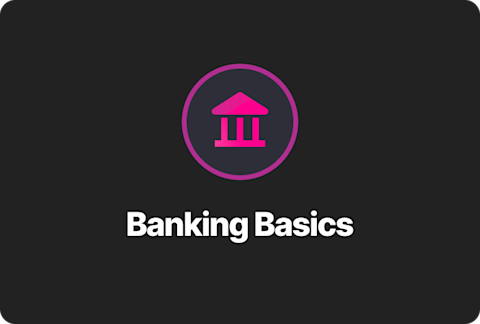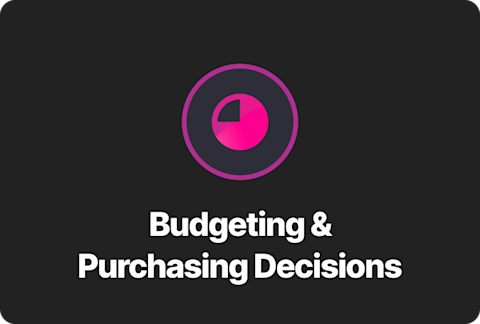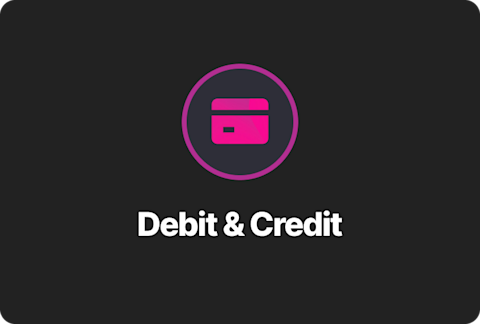Why is building credit important?

Without building a credit history* many things in life will be more expensive and, in some cases, even unattainable. While opening a credit card is the easiest way to start building up your credit, it can also be costly if you don’t use your card wisely. A recent report from Experian revealed that the average millennial owes $4,899 in credit card debt, which is not where you want to start your credit journey.
Step was built as a credit builder to help today’s teens and young adults avoid these common pitfalls with a mission to improve the financial future of the next generation by teaching them smart money skills and good credit habits at an earlier age. Building and maintaining an excellent credit history and credit score is a critical part of that financial foundation. Having a good credit score unlocks access to more favorable financial terms, saving you money.
Here are a few examples that have a big impact as you become more financially independent:
Cell phone plans: Having a good credit score can mean the difference in getting the best rates on a cell phone contract versus having to accept a more expensive prepaid plan.
Car insurance: In many states, you will pay more on monthly car insurance premiums if you have bad or no credit history.
Applications for employment & rentals: Your applications for employment and rentals can be denied based on having a bad or no credit score –– holding you back from getting a job or apartment as you head off to college.
Credit cards: While credit card companies offer rewards and benefits to customers with credit scores, most students have little to no credit history. This means credit cards available to college students and young adults often have high interest rates and fees. With credit cards, it is more important than ever to make sure you research the best credit cards and don't take on more than you can handle with multiple credit card accounts to get a higher credit line. With credit card accounts, you need to make sure you have responsible credit behavior with a positive payment history and are not letting your credit card balances get out of control with late payments, but instead paying your credit card bill with on time payments.
Student loans: On a typical student loan the difference between no credit score and a positive credit score can cost you thousands of dollars in interest on comparable loans.
Personal loans: Many students use personal loans to cover the cost of books, a computer or part of the tuition that student loans may not cover. Without a positive credit score, you might have to settle for a higher interest rate, or in some cases, you may not be approved at all. A Visa credit card to build credit can help establish a strong financial foundation and improve your approval chances.
Unfortunately, traditional banks don’t help you build credit without using potentially risky or predatory lending and credit products. Step is a secured credit card focused on credit building that offers a new, safe way to build and maintain positive credit –– before you turn eighteen. The Step Card gives you the security to never overdraft or overspend with the added protection and benefits of a credit card.
Personal Credit vs. Business Credit: Why Both Matter
While building personal credit is crucial for securing loans, credit cards, and financial stability, some individuals may eventually need to establish business credit as well. If you plan to start a business in the future, understanding how to separate your personal and business credit early can be beneficial.
One way business owners build credit is through net 30 accounts for business credit. These accounts allow businesses to buy now and pay later—typically within 30 days—helping them establish a credit history similar to how personal credit is built with on-time payments and responsible credit utilization.
That said, your personal credit score still plays a major role when applying for initial business loans or credit cards, especially if you’re a first-time entrepreneur. By focusing on smart financial habits now—such as making on-time payments, keeping credit utilization low, and using a credit-building app—you set yourself up for both personal and future business financial success.
The importance of understanding and monitoring your credit score
A credit score is a number between 300 and 850 that represents how responsible you are with money. Your ability to get affordable rates on things like student loans, cars, apartments, and cell phone plans depends on your credit score. The higher the score, the more likely you are to get approved with lower interest rates and premiums, ultimately saving you money. FICO considers a “good credit score range" to be a FICO score of 670-739 and 661-780 by VantageScore 3.0. No matter if you have a Step Card or another credit card, credit score monitoring across the major credit bureaus (ie. checking your FICO credit score), balancing your credit utilization ratio, and making sure there are no credit report errors.
Here’s how the Step Card works:
Your Step Card is a secured credit card and credit builder. When you make a deposit into your Step account, you have the ability to spend up to that amount with your Step Card, but we won't let you overdraw your account. Each time you use your Step Card, Step secures that amount from your deposit account. Through Step's Smart Pay, you can have Step automatically pay off your bill every month with on-time payments. This creates a positive credit history, which Step reports to the major credit bureaus when you turn 18, and provides credit monitoring without ever having to leave the Step App. The average Step User has an initial credit score of 723 when they turn 18. Step has created these products to help lead the next generation to a brighter financial future through a credit building app designed to teach responsible credit habits from an early age.
If you're ready to take control of your credit journey, download Step Credit Building App on Google Play and start building a strong financial foundation today.








